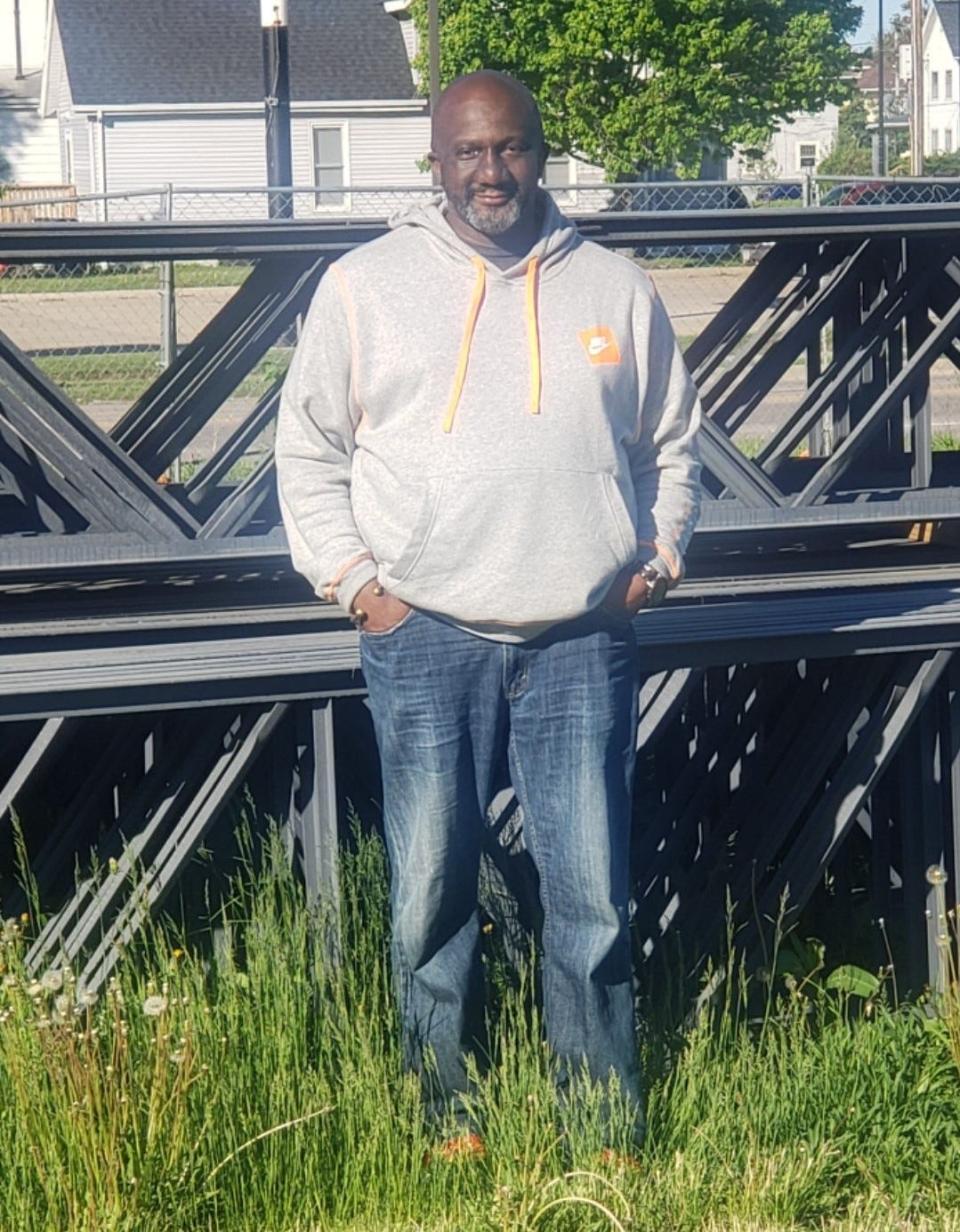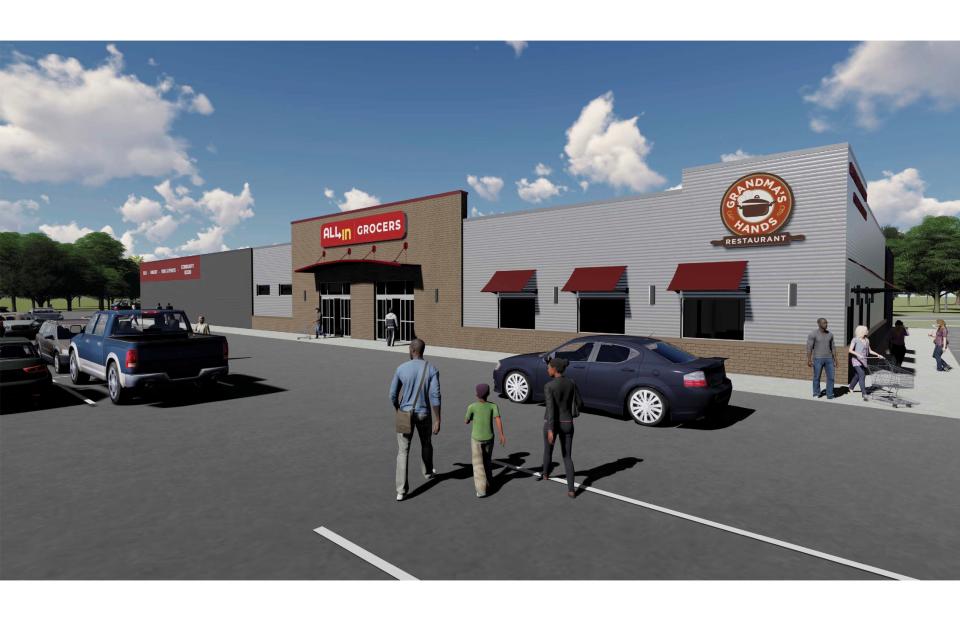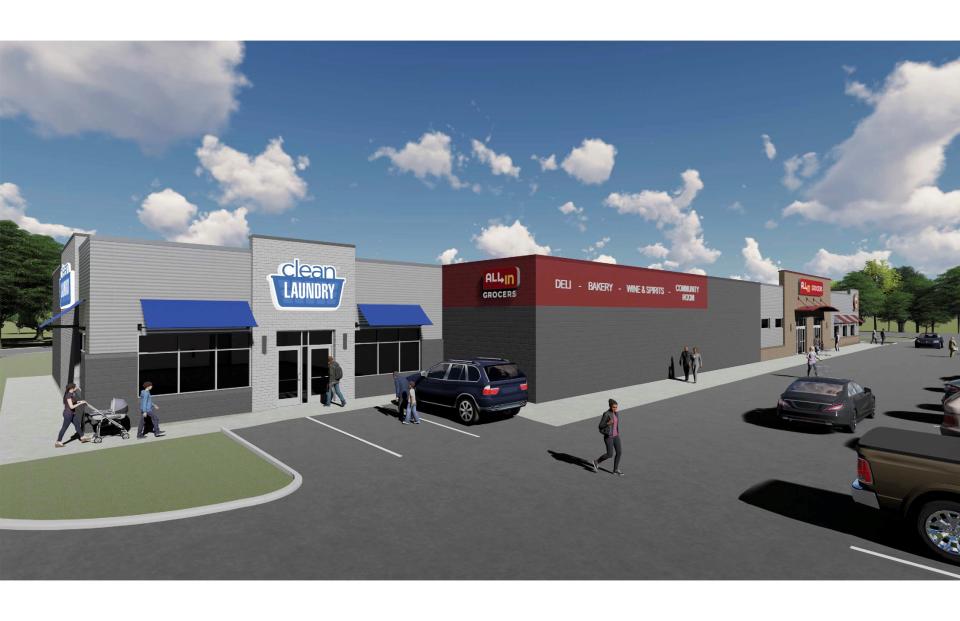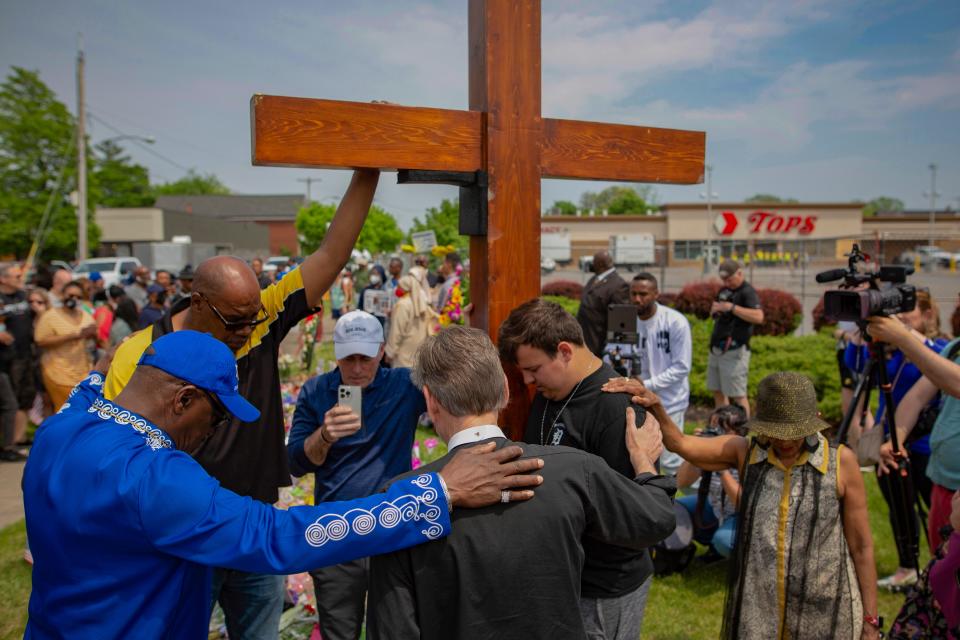Opinion: Can Waterloo's new grocery store model work for Buffalo after racist massacre?
Residents in Buffalo, New York, who are still struggling to process the horrific, racist massacre of innocent people in the May 14 shooting deaths at the Tops grocery store, are now once again struggling with lack of access to a grocery store.
Tops, which the community fought to get for nearly 10 years, is still closed. While it is scheduled to reopen, the date is unknown.
Some of Buffalo’s Black residents want a fresh start with a new store instead of Tops, and some want fresher produce and larger inventory. They also want a community gathering spot again. That made me wonder if Waterloo’s new All-In Grocers model could provide a solution.

More: 'We don't feel safe': Many Black Americans experiencing grief, trauma after Buffalo shooting
Like East Buffalo, East Waterloo also has low access to a grocery store — with the closest one at least 2 miles away — and to other community resources. But Black Waterloo natives Rodney Anderson, a land developer, and his partner, Lance Dunn, city of Waterloo human resources director, are solving that with their $10 million, 26,000-square-foot grocery store complex.
The complex, at 225 Franklin St., will include All-In Grocers, Grandma’s Hands Restaurant, Clean Laundry and the Willie Mae Wright Community Center, named after Waterloo's civil right's icon. Not only will the center host cooking, math, science and history classes, but it will be the satellite office of the 1619 Freedom School, founded by Waterloo's Pulitzer Prize-winning journalist, Nikole Hannah-Jones.
Barring any supply chain issues, construction will begin June 13, and the complex will open in December.
Community is included in every aspect
The availability of affordable, fresh, healthy food options in a community that has gas stations and small mini-marts offering more expensive and unhealthy ones is great by itself. But what is equally great is the integration of the community into the project. This integration is evident even in its name, All-In Grocers. Though the store will be Black-owned and operated, employees and customers of all nationalities representative of the neighborhood will be sought. Plus, to make both the store and the restaurant welcoming to all, the products and menu items will reflect numerous cultures.
More: New Register columnist: I'm excited to again try something new, and I'd like your help

Another example is ongoing community involvement. Beginning in July, community meetings will be held monthly until the store opens. Here, residents will be invited to provide feedback and product suggestions.
Then, there’s staffing.
Dunn will work with Premier Staffing to oversee recruitment and hiring of diverse staff. Providing leadership opportunities, especially to Black women who both Anderson and Dunn believe are often overlooked, will be key — both as employees as well as small business owners whose products the store will carry.

Additionally, Anderson contracted with Waterloo’s Road Home Reentry to hire 100% of the men — with hopes to include women later — with prison records who successfully complete the organization's 16-step program. The first year, there will be 20 men. American Family Insurance Institute in Madison, Wisconsin, which is contracted to support the program for five years, will cover graduates' salaries while they are trained to work at the grocery store.
“All-In Grocers is a building block of the community,” Anderson said. “And it's also the socio-economic block of the community. If you are cutting out a certain percentage of people because they have a record, getting out of jail, or hit hard times, you're doing a disservice to the community.”
Anderson also contracted with Terry Phillips, owner of DC Corp, one of the few Black-owned firms specializing in concrete work.
Funding and supply chain delays caused construction delays
Anderson is an experienced developer. He owns commercial property in Texas and Florida, including a 20,000-square-foot shopping plaza in Waterloo that he’s had for 10 years. The shopping plaza businesses are Earth Beauty Supply, 2 Scoops Ice Cream Shop and Taqueria Los Reyes.
For four years, Anderson has been trying to make All-In Grocers a reality. First, it took two rounds to obtain funding.

In 2018, Anderson sought to take advantage of the New Markets Tax Credit Program, which gives investors a tax credit of 39% of their original investment, taken over 7 years.
But that deal didn’t completely get off the ground. Anderson’s calls to local financial institutions went unnoticed, with no callbacks.
So Anderson scrapped the tax credit program and went the traditional route, which resulted in success. “All of our major funding is outside of Waterloo, Iowa, and Iowa in general,” Anderson said.
The project’s major funder is Self-Help Credit Union in Durham, North Carolina.
“They're doing all the heavy lifting with the real estate portion of this deal and the equipment,” said Anderson, despite the fact that they’ve never set foot in Waterloo.
Wait. A financial institution more than 1,000 miles away is doing what those in Waterloo refused to do?
Yes.
Anderson shares my incredulity, with a large dose of gratitude. “They don't know anything about Waterloo, Iowa. But they know one thing: Waterloo needs help, and that's what they stepped up and did.”
More: Opinion: One donor body can save hundreds of lives (with the help of an organ harvester)
Others outside of Waterloo who have partnered with Self-Help include IFF (Illinois Facilities Fund), American Family Insurance Institute, CUNA Mutual Group Foundation, and Denver Savings Bank, located in small Denver, Iowa. Anderson did obtain some funding in Waterloo from the Iowa Northland Regional Council of Governments, Midwest One Bank and Black Hawk Economic Development, which provided a Small Business Administration loan for Anderson’s shopping plaza.
The Waterloo City Council, especially the late Sharon Juon and former member Pat Morrissey, Mayor Quentin Hart and city planning director Noel Anderson, have been major supporters of the project.
“All this would not have happened if it hadn’t been for them supporting the vision of All-In Grocers,” Anderson said. “Because we're not a chain, we don't have an endless amount of money. But we needed an endless amount of support, and that's what they gave us. So I would say the actual city of Waterloo, the City Council, they did a great job.”
Without the council's support, there would have been no land for a project this large.
“They gave us a grant for the land to build the grocery store," Anderson said. "And with that grant comes a development agreement that you have to have it done in three years, and if you don't get it done, you have to go back to City Council and ask for an extension, and they can vote to give you an extension or ask for the land back.”
After funding was obtained, the pandemic caused supply chain issues. Production stopped due to worker shortages, and when workers returned, demand drove up the price of materials, which the partners covered from their personal resources. But large corporations and chains got first rights on materials, and the All-In Grocers project was pushed to the back burner.
But now, again barring any unforeseen supply issues, the project is back on track.
So, could the All-Grocers complex model work in Buffalo?

I believe it could. I love the idea of an independently owned store, created by people who live in the community, addressing the varied needs of the community and creating opportunities for its residents.
"Without a doubt, me and the whole team would definitely be there to help," said Anderson, in answer to my question. He thinks they have worked out all the kinks and created a repeatable model. "Why wouldn't we help someone when, at one time, no one would help us?"
Rachelle Chase is an opinion columnist at the Des Moines Register. Follow her at Facebook.com/rachelle.chase.author or on Twitter @Rachelle_Chase.
This article originally appeared on Des Moines Register: Opinion: Is community grocery store plan in Iowa an option in Buffalo?

